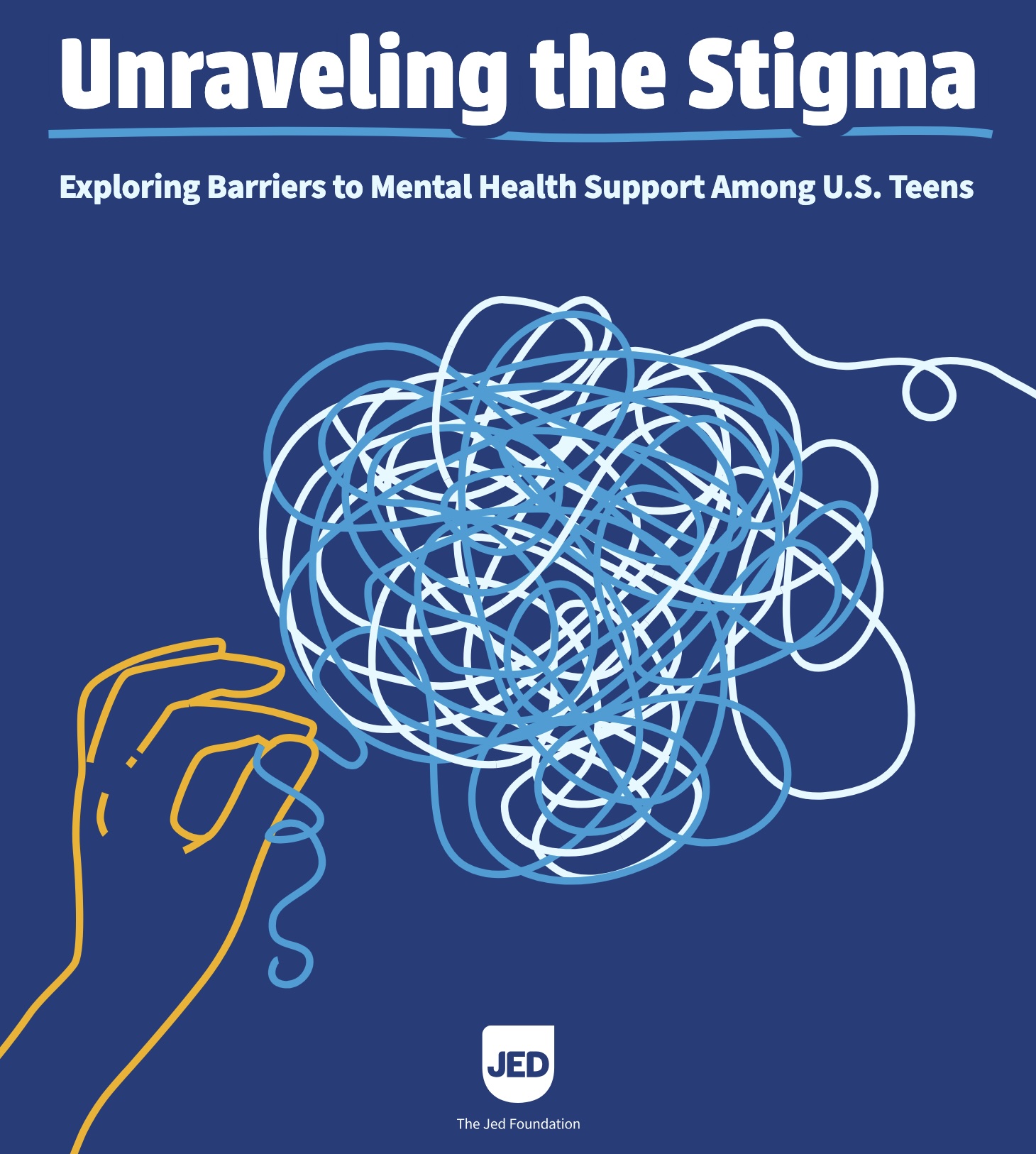
The stigma attached to mental health issues is widely viewed as a major barrier for those in need of help, but its relevance to teens and young adults has not been studied in depth. The Jed Foundation’s research shows that stigma-related obstacles, like the shame caused by difficult emotions, are not the most important factors preventing teens from reaching out for mental health support.
While many barriers to mental health treatment exist, stigma traditionally has been high on the list. Mental
health stigma generally encompasses negative and often unfair attitudes, beliefs, and behaviors regarding
people with a mental health condition. People who carry stigma-related attitudes and beliefs are less likely
to access care and follow through with treatment for their mental health needs.
However, stigma has been largely understudied among teen populations, and teens may not experience stigma the same way adults do. Perceptions of stigma as well as attitudes toward mental health and help-seeking behaviors may also vary by race, ethnicity, gender identity, and sexual orientation.
Additionally, each new generation forms its own perspectives on mental health care, which can create opportunities for more open discussion of mental health struggles. The impact of COVID-19 likely increased mental health awareness after the loneliness, isolation, grief, and life disruptions experienced by many since 2020.

This research study examined teens (ages 13 to 17) and their help-seeking behaviors, attitudes, and barriers. The JED Foundation sought to understand the role stigma plays in discouraging help-seeking behaviors and to determine which groups are more likely to encounter different barriers to receiving help.
…stigma has been largely understudied among teen populations, and teens may not experience stigma the same way adults do.
The Jed Foundation explored ways to better promote help-seeking behaviors and encourage more teens to seek support when they face emotional challenges. The study also aimed to ensure that the systems supporting students, such as schools and parents, receive the information and best practices they need to support students through difficult emotions.

Key Findings
- 42% say they lack the words to ask for help
- 33% say it is hard to find safe moments to talk
- 48% say they would only seek out professional help as a last resort
Although 74% of teens say it is a sign of strength to reach out for their mental health…
Top reasons that teens don’t seek help include:
- They fear others won’t understand them
- They feel like talking about difficult feelings would make them uncomfortable
- They don’t want to be a burden
Top reasons that teens hesitate to confide in other teens include:
- They fear their peers will tell others
- They feel unsure how their peers could help
- They worry their peers would not want to hear about the problem
Additional Research Findings
- More than half (59%) of teens are most likely to reach out to an adult if they are worried about a friend being suicidal and 43% are less likely to reach out if they are suicidal.
- Teens prefer that adults listen to their mental health concerns without judgment and keep conversations confidential, whenever possible.
- When teens seek out support online, they are most likely to use TikTok (43%), YouTube (39%) and Instagram (38%).
- Stigma-related barriers are higher among Asian, Hispanic/Latinx, Black/African American and LGBTQ+ teens, reducing their tendency to reach out for support compared to peers surveyed in the study.
- Teens may be more likely to experience stigma-related barriers when it comes to sharing information with friends than adults.

How can we let our teens know we’re here for them and protect them from significant mental health challenges? Check out our podcast on how to talk to teens about mental health.
The report also features a roadmap for supportive adults to help protect the young people in their lives. It calls for improving education about mental health resources and educating adults to understand and address barriers teens face so they can initiate open and honest conversations with young people.
Read or download the full report on the Jed Foundation website.
Source: The Jed Foundation (2024). Unraveling the Stigma: Exploring Barriers to Mental Health Support Among U.S. Teens. https://jedfoundation.org/unraveling-the-stigma-report| Copyright The Jed Foundation, 2024. Retrieved April 2025.





